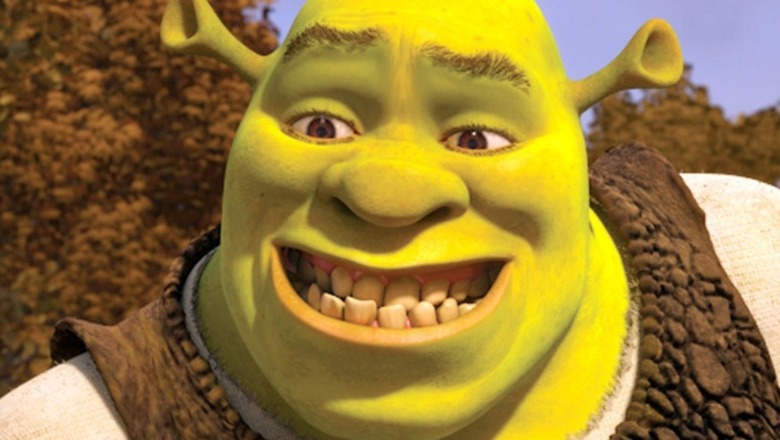Why Working On Shrek Was Seen As A Punishment For Animators
Since the film series' debut over two decades ago, the "Shrek" franchise has existed as one of the world's most successful animated properties. With over $3.5 billion accrued over five films, "Shrek" remains one of the highest-grossing film series of all time (via The Numbers). It's interesting then, in hindsight, to remember that the series wasn't always viewed as such a sure thing.
According to the New York Post, DreamWorks Animation first started production on "Shrek" in 1996, and though it was one of the studio's only working projects at the time, executives and employees alike treated it as more of a burden. Like Harry Potter living in the cupboard under the stairs, "Shrek" was thrown the scraps and hand-me-downs of DreamWorks' resources. The project traded more hands than a deck of cards. "Getting Shreked," as employees called it, was nothing less than a punishment for animators, writers, and directors who weren't performing on other projects.
It's a miracle then, that the movie turned out to be so successful. For all intents and purposes, DreamWorks' treatment of "Shrek" was tantamount to self-sabotage, so why would a young studio treat one of its debut properties so harshly? Why was "Shrek" seen as a punishment? It all comes back to the classic Hollywood fear of the unproven and the unknown.
DreamWorks preferred Prince of Egypt for its traditional appeal
While it's hard to say that DreamWorks was right for initially disregarding "Shrek," at the time it might not have seemed like a bad business decision. "Toy Story," as CBR reported, had just come out a year before "Shrek" entered production, and people were only just beginning to see the potential of 3D CG animation. It makes sense that the company wouldn't prioritize the riskier CG movie when they had a traditional animated feature in the works, "Prince of Egypt."
"Prince of Egypt" pulled in nowhere near as much revenue as "Shrek," but before the box office returns came in, "Prince of Egypt" seemed like the safer, more traditional bet. There was already precedent for successful 2D animations from companies like Disney. Anything outside of that realm was inherently more risky, and if there's one thing Hollywood studios loathe, it's taking chances on bold ideas.
Obviously, that calculus changed soon after "Shrek" debuted, showing the world that "Toy Story" wasn't an enigma. As a result, DreamWorks hasn't produced another 2D animated film since 2003's "Sinbad." Meanwhile, the company would go on to make four more entries in the "Shrek" series.
There's gotta be a lesson here somewhere ...

